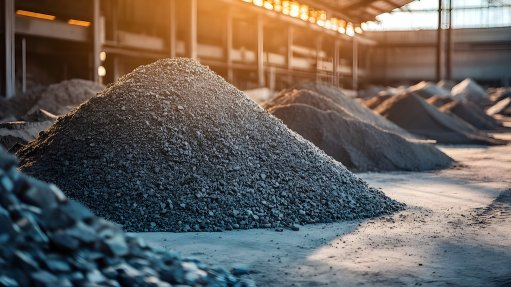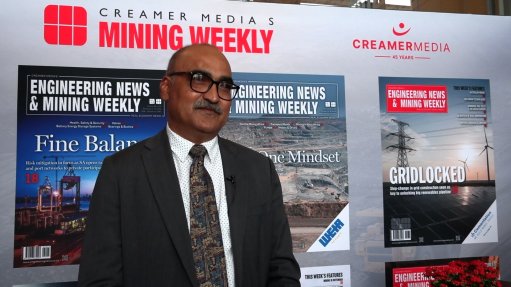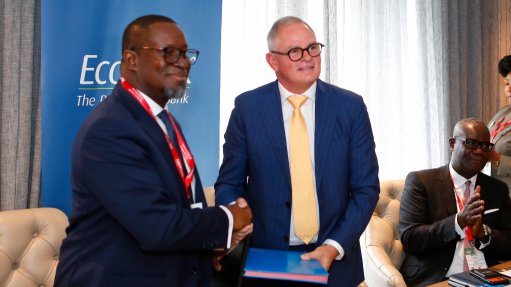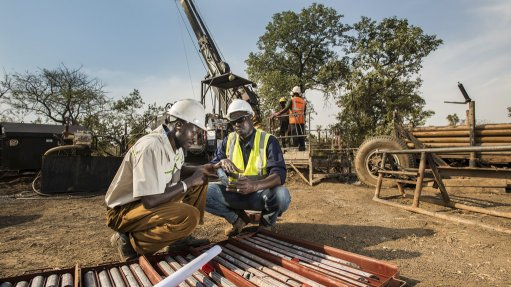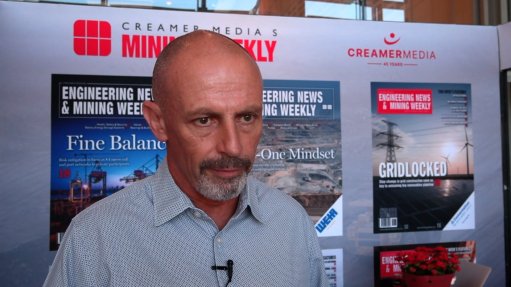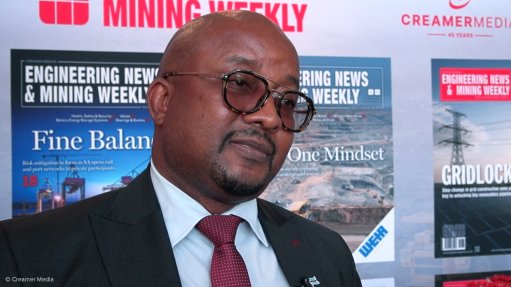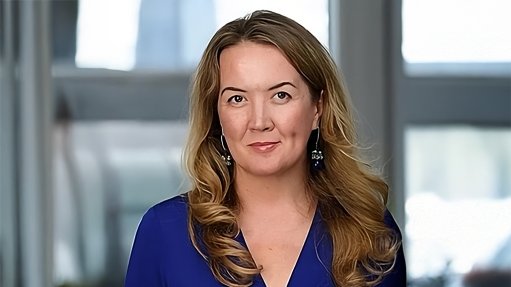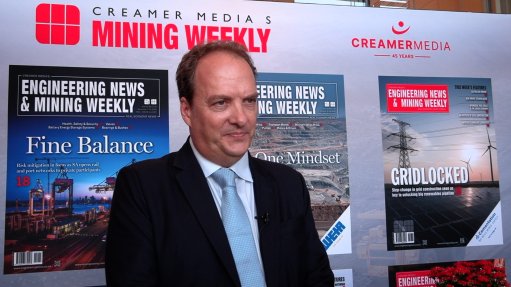Celebrating 110 years of ‘geoscientific excellence’

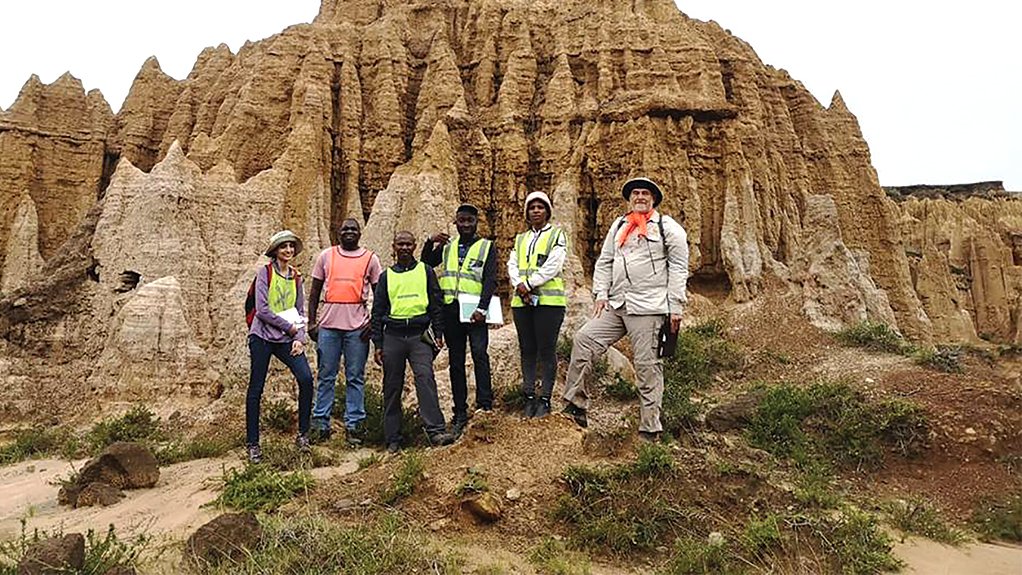
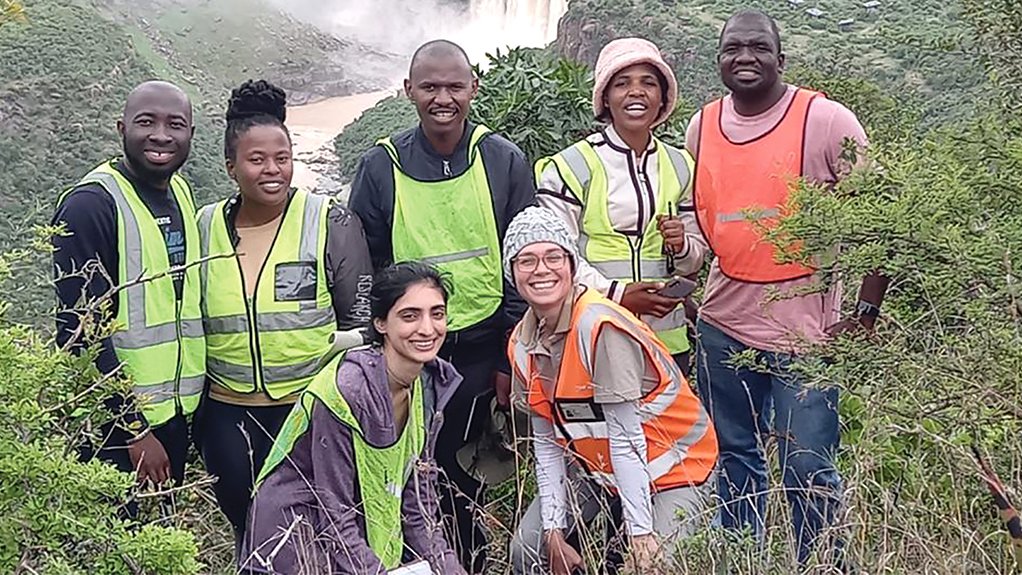
Nyandeni local municipality, Ngwevana, the Eastern Cape Grand Canyon compromised of Masotcheni formation
Tsitsa Falls
The Council for Geoscience (CGS) celebrated 110 years of existence and “geoscientific excellence” by hosting the 2022 CGS Summit, at the Inkosi Albert Luthuli International Convention Centre Complex, in Durban, in KwaZulu-Natal, from October 25 to 27.
CGS CEO Mosa Mabuza noted: “We are looking back to the formation of this institution and we are celebrating the contribution of geoscience to development, to human development. There are a number of principles through which geoscience contributes to development and our forebears have built a very solid foundation. We are today celebrating that we are standing on the shoulders of giants. It is significant in that it goes beyond the institution and embraces the geoscience profession.”
As the legal successor of the Geo-logical Survey of South Africa, the CGS – established under the Geoscience Act in 1993 – had to adapt and transform alongside the country at the dawn of democracy. It actively sought to foster greater diversity among its ranks and started an evolution that wrought today’s modern institution boasting excellent facilities and expertise ranking among the best in Africa.
The summit, which attracted delegations from other African countries, Russia and China, showcased numerous research projects and incorporated posters and presentations from a variety of experts and specialists on topics such as marine geoscience, the role of the Geological Survey of South Africa in World II, the link between rainfall and seismicity, and carbon capture, utilisation and storage (CCUS).
The summit also allowed the council to reflect on its contribution to South Africa’s economic development to date and enabled networking opportunities among various universities and geological surveys which may yet result in research partnerships.
Russia’s Federal Agency of Minerals Resources head Dr Evgenii Petrov proposed such partnerships during his keynote address at the Summit, presenting a ‘Geology Cooperation Concept’ draft for regular cooperation among the geological agencies of Brazil, Russia, India, China and South Africa, better known as the Brics nations.
Most importantly, however, the summit allowed the council, its affiliates and its employees to consider the CGS’s role over the next century.
The Fulcrum of Human Development
Mabuza, during the summit, described geosciences as the fulcrum of human development, adding that CGS, while mandated to promote research that extends knowledge in the field of geoscience and provide specialised geoscientific services, has also positioned itself as a council that “works for the people, for South Africans”.
This sentiment was echoed by Mineral Resources and Energy Minister Gwede Mantashe, who said that the CGS should occupy a more pre-eminent role in addressing the socioeconomic challenges affecting the country.
“These challenges include, but are not limited to, energy security, a Just Energy Transition (JET), sustainable food supply, economic growth, climate change, and disaster management that arises from natural phenomena.”
The Minister added that, given the geosciences’ capability to assist with these challenges, more government departments should take advantage of the 2010 Amendment of the Geoscience Act that empowered the CGS to “review all geotechnical reports and provide appropriate advice to the local authorities in consideration of their infrastructure development programmes”.
“It is not the Department of Mineral Resources and Energy’s CGS. It is the country’s CGS, and as such, I call upon our municipalities to imbue this notion in their by-laws to augment their service delivery programmes to the satisfaction of the people they serve.”
He cited the government’s multi-billion-rand infrastructure build programme, stating that it would require CGS and the geotechnical community to “play an acute role” in safeguarding the integrity of critical infrastructure investment.
Mantashe commented that the CGS was already compiling geotechnical investigation reports on potentially unstable dolomitic areas identified for the construction of Reconstruction and Development Programme houses and would be expected to participate in the government’s infrastructural development programme.
Further, the CGS was actively involved in water-related research and the development of local skilled expertise, by collaborating with several institutions, to assist with the “urgent” water-scarcity and water-related challenges affecting the country.
The CGS’s lead role in the pilot CCUS project in Leandra, Mpumalanga, highlighted one aspect of the council’s role in assuring the implementation of the JET.
The project, which is expected to become operational in early 2024, will test the feasibility of injecting between 10 000 t to 50 000 t of carbon dioxide a year, to a depth of at least 1 km.
Mantashe also stressed the CGS’ role in helping South Africa find and extract critical minerals. “Any new technology, any green technology, requires [inputs] that are grown, or mined”, and the CGS acts as a repository of the geological information and data that underpins the mining industry.
The Minister stressed that he was expecting the council to work with the private sector to re-catalyse exploration activities in the country, while lauding the CGS for assisting with the problem of illegal mining.
“I appreciate the responsiveness of the CGS in speedily developing an illegal mining tracker technique using geoscientific techniques, which will detect illegal mining activities well in advance and communicate with the law enforcement authorities to deal timeously with such activities.”
In a video presentation touting the value of the CGS, the council noted its progress with the integrated multidisciplinary mapping project (IMMP), which was launched in 2017 and was designed to map the entirety of South Africa at a scale of 1:50 000. The IMMP has mapped 10.73% to date and the council has discovered several mineral deposits including lithium-bearing pegmatite in the Northern Cape.
Critical Activities
“What we are, what we were, what we should always be, is a custodian of the geological knowledge and data of South Africa,” the CGS stated.
“The value of geoscience is really in its ability to increase the gross domestic product of the country,” because nurturing an understanding of a country’s geology and climate allows for a more comprehensive and pragmatic approach to economic activity.
“We have evolved into an organisation that is integral to the development of South Africa and Africa. This institution, like our Constitution, belongs to all South Africans. And I want South Africans to know that this is their institution. It is the custodian of geosciences broadly, and it is in their best interest and benefit to be associated with an institution like the CGS,” Mabuza stated.
Tel: +27 12 841 1911
Email: info@geoscience.org.za
Article Enquiry
Email Article
Save Article
Feedback
To advertise email advertising@creamermedia.co.za or click here
Press Office
Announcements
What's On
Subscribe to improve your user experience...
Option 1 (equivalent of R125 a month):
Receive a weekly copy of Creamer Media's Engineering News & Mining Weekly magazine
(print copy for those in South Africa and e-magazine for those outside of South Africa)
Receive daily email newsletters
Access to full search results
Access archive of magazine back copies
Access to Projects in Progress
Access to ONE Research Report of your choice in PDF format
Option 2 (equivalent of R375 a month):
All benefits from Option 1
PLUS
Access to Creamer Media's Research Channel Africa for ALL Research Reports, in PDF format, on various industrial and mining sectors
including Electricity; Water; Energy Transition; Hydrogen; Roads, Rail and Ports; Coal; Gold; Platinum; Battery Metals; etc.
Already a subscriber?
Forgotten your password?
Receive weekly copy of Creamer Media's Engineering News & Mining Weekly magazine (print copy for those in South Africa and e-magazine for those outside of South Africa)
➕
Recieve daily email newsletters
➕
Access to full search results
➕
Access archive of magazine back copies
➕
Access to Projects in Progress
➕
Access to ONE Research Report of your choice in PDF format
RESEARCH CHANNEL AFRICA
R4500 (equivalent of R375 a month)
SUBSCRIBEAll benefits from Option 1
➕
Access to Creamer Media's Research Channel Africa for ALL Research Reports on various industrial and mining sectors, in PDF format, including on:
Electricity
➕
Water
➕
Energy Transition
➕
Hydrogen
➕
Roads, Rail and Ports
➕
Coal
➕
Gold
➕
Platinum
➕
Battery Metals
➕
etc.
Receive all benefits from Option 1 or Option 2 delivered to numerous people at your company
➕
Multiple User names and Passwords for simultaneous log-ins
➕
Intranet integration access to all in your organisation








